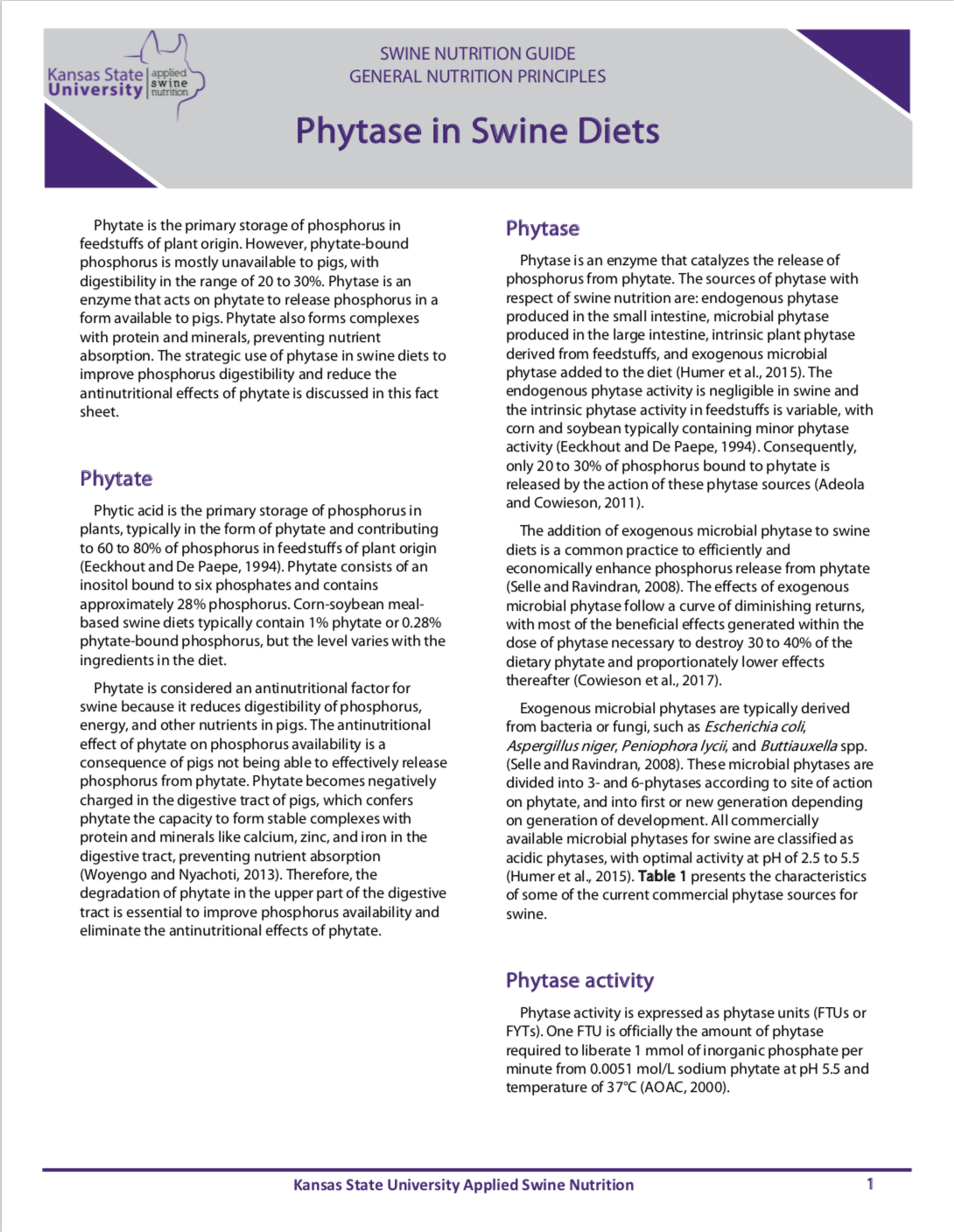Phytase
Phytate is the primary storage of phosphorus in feedstuffs of plant origin. Phosphorus is an essential mineral that must be supplied by the diet to meet the requirements for maintenance, growth, and bone development. However, phytate-bound phosphorus is mostly unavailable to pigs, with digestibility in the range of 20 to 30%. Phytate also form complexes with protein and minerals, preventing nutrient absorption.
Phytase is an enzyme that acts on phytate to release phosphorus in a form available to pigs. The use of phytase in swine diets improves the digestibility of phosphorous and reduces the antinutritional effects of phytate. Moreover, the improvement in utilization of phytate-bound phosphorus decreases the environmental impact of phosphorus excretion in swine waste and minimizes the use of inorganic phosphorus. Inorganic phosphorus sources are widely used in swine diets, but are expensive and non-renewable resources. Therefore, the strategic use of phytases in swine diets has the potential to provide economic and environmental advantages.
